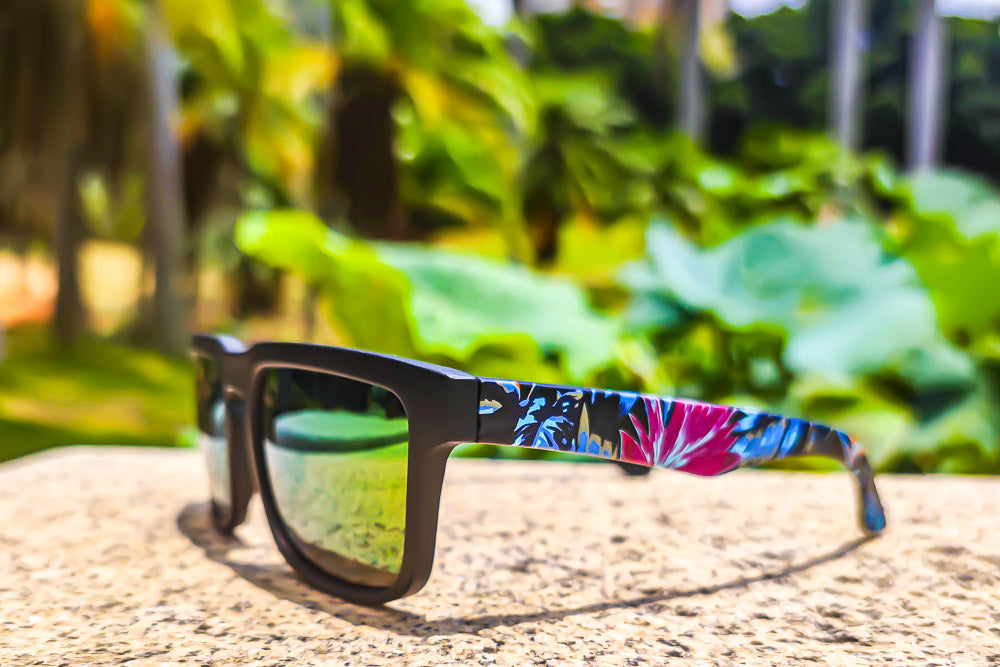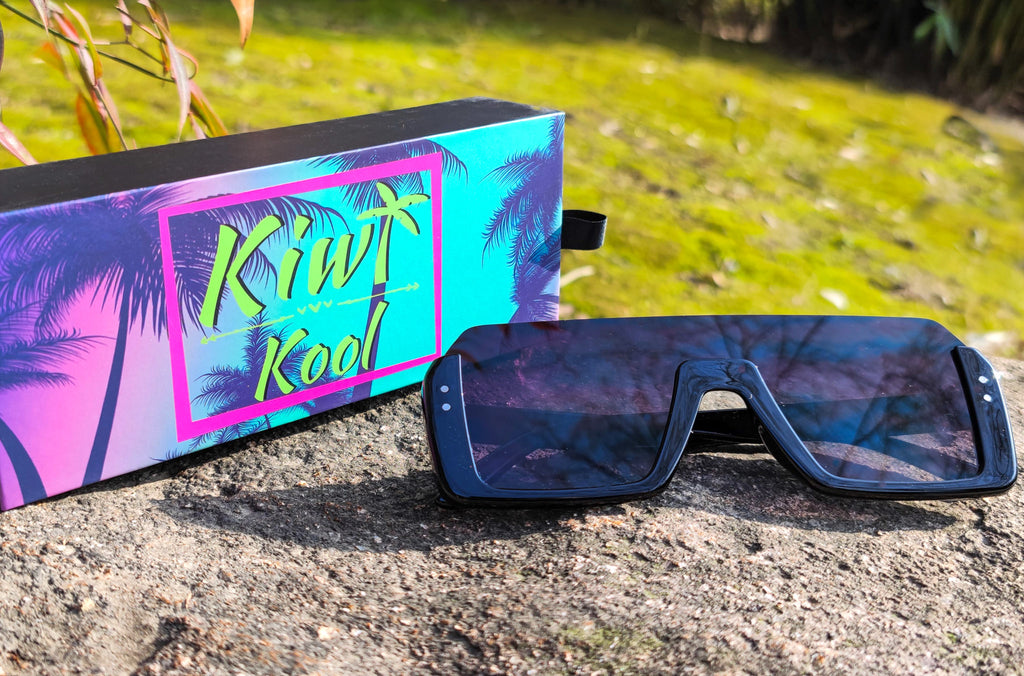Polarized vs. Non-Polarized Sunglasses Guide - Are Polarized Lenses Better?
Sunglasses are more than just a fashion statement; they're essential for protecting your eyes from the sun's harmful UV rays and intense glare. However, with so many sunglass styles and lens types available, choosing the right pair of shades can be a daunting task. One key decision you'll face is whether to opt for polarized or non-polarized lenses.
The Science Behind Polarized and Non-Polarized Lenses:
- Non-polarized lenses: These standard lenses simply absorb or reflect a portion of the incoming light, offering basic UV protection and reducing overall brightness. They work by uniformly blocking all light waves, regardless of their direction.
-
Polarized lenses: These anti-glare lenses contain a special filter that selectively blocks horizontal light waves, the primary culprit behind glare bouncing off reflective surfaces like water, snow, pavement, and even car windshields. This specific filtering mechanism offers several advantages:
- Reduced glare: This translates to improved visual comfort and reduced eye strain, making them the best sunglass lenses for driving, fishing, boating, or any outdoor activities with very bright sunlight.
- Enhanced color and contrast: By blocking horizontal light waves, which tend to scatter and cause color distortion, polarized lenses allow vertical light waves to pass through unhindered. This results in richer, more vivid colors and sharper visual clarity, offering a more enjoyable viewing experience.
Choosing the Perfect Pair for Your Needs:
Polarized lenses are ideal for:
- Outdoor enthusiasts: Hikers, bikers, boaters, anglers, and anyone who frequently encounters glare.
- Drivers: Enhanced visibility and reduced glare from reflective surfaces like car windshields and wet roads contribute to safer and more comfortable driving.
- Individuals seeking superior visual clarity and richer colors: Photographers, athletes, and anyone who prioritizes sharp vision and accurate color perception can benefit from the enhanced visual experience offered by polarized lenses.
However, there are some situations where polarized lenses may not be the best choice:
- Activities involving digital screens: In certain situations and viewing angles, polarized lenses can distort the view of LCD screens found in phones, GPS devices, and computer monitors.
- Budget-conscious shoppers: Polarized lenses typically come at a slightly higher cost compared to non-polarized alternatives.
Non-polarized lenses can be a good fit for:
- Everyday wear: They offer basic UV protection and provide a comfortable level of shade for casual use.
- Activities involving digital screens: No distortion issues for viewing electronic devices.
- Those seeking a more affordable option: Non-polarized lenses are generally offered at a lower price point.
Beyond the Basics: Additional Sunglass Lens Types
Mirrored Lens Sunglasses
Mirrored lenses add a fashionable touch to sunglasses while also offering additional benefits:
- Reduced glare: Similar to polarized lenses, mirrored lenses have a reflective coating that helps to block some of the incoming light, particularly intense sunlight and glare bouncing off reflective surfaces.
- Increased privacy: The mirrored finish acts like a one-way mirror, making it harder for others to see your eyes while still allowing you to see clearly.
- Fashion statement: Mirrored lenses come in a variety of colors and finishes, allowing you to express your personal style.
Gradient Lens Sunglasses
Gradient lenses provide a stylish and practical option:
- Transitional sun protection: These lenses feature a gradual change in tint from dark at the top to light at the bottom. This offers protection from harsh sunlight at the top while allowing for clear vision at the bottom, making them ideal for activities that involve looking up and down frequently, such as driving or fishing.
- Enhanced aesthetics: Gradient lenses create a visually appealing effect, adding sophistication to your sunglasses.
Finding the Perfect Pair of Affordable Sunglasses:
It's no secret that most sunglasses are expensive, but there are quality inexpensive sunglasses under $100 and even $50 that offer the same lens functionalities without breaking the bank. Here are some options to consider, without compromising on quality or style:
-
Polarized lens sunglasses: For the benefits of reduced glare and enhanced visual clarity, explore Kiwi Kool's collection of polarized lens sunglasses, known for their vibrant colors and trendy designs:
https://kiwikool.co/collections/polarized-sunglasses.
-
Gradient lens sunglasses: If you're looking for a stylish option that offers a smooth transition from a darker shade at the top to a lighter shade at the bottom, providing both sun protection and clear vision, check out Kiwi Kool's gradient lens sunglasses:
https://kiwikool.co/collections/gradient-lens-sunglasses.
-
Mirrored lens sunglasses: For a combination of style, sun protection, and privacy, consider the selection of mirrored lens sunglasses offered by Kiwi Kool:
https://kiwikool.co/collections/mirrored-sunglasses.


Leave a comment